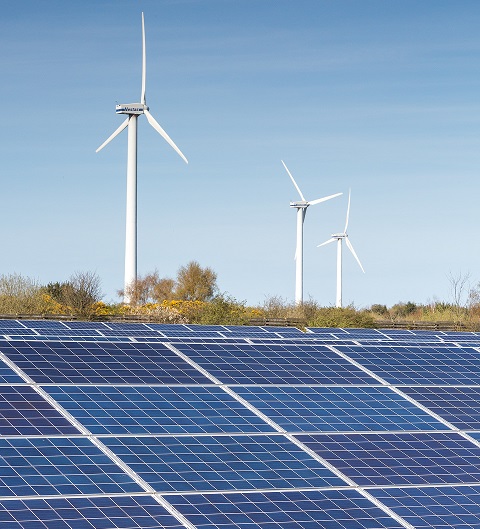Nissan has successfully breached its target for global emissions from corporate activities after seeing CO2 levels fall by almost a quarter since 2005.
The Japanese manufacturer had aimed to reduce emissions by 20% by fiscal year 2016, as measured by the index of CO2 emissions per vehicle. The company’s latest sustainability report shows that this was in fact reached in FY2014, when emissions were reduced by 23%.
Despite a small increase in emissions, FY2015 data showed this remained at an overall reduction of 22.4% over the last decade as Nissan works towards its long term vision of an 80% reduction by 2050.
The company was able to reach its emissions target through an increase in the use of renewable energy worldwide. The company’s Sunderland manufacturing base, which develops the batteries for the Nissan LEAF model, recently saw the completion of a new 4.75MW solar farm alongside an existing wind farm, which together supply 7% of the site’s total usage.
Similar schemes have been rolled out around the world, with 50% of the power used at the Aguascalientes plant in Mexico coming from wind energy and biomass.
As well as wider adoption of renewable energy, Nissan has also committed to a series of energy saving measures, particularly in its manufacturing facilities. In production technology, the company has introduced highly efficient equipment and adopted energy saving lighting.
Approximately 30% of all CO2 emissions from plants is said to come from the painting process and so Nissan also introduced its three-wet paint process to shorten or eliminate baking stages within the process to bring about a reduction in emissions.
In addition, Nissan Energy Saving Collaboration (NESCO) diagnoses energy loss at the plants and proposes new energy-saving countermeasures. Nissan estimated that 53,754 tons of carbon could have been saved through FY2015 from this initiative.
These schemes have helped Nissan lower its carbon emissions by 22.3% from the fiscal 2005 level as it looks to progress towards a target of 27% by FY2016.
Nissan also has specific plans for its other business locations, having aimed to reduce total emissions per floor area by 1% each year. The sustainability report shows it has failed to do this despite having achieved a reduction of 1.8% in FY2014. The recorded increase of 0.7% is however due to changes in CO2 measurement in Japan and may not represent an actual increase in emissions.
Hitoshi Kawaguchi, chief sustainability officer for Nissan, said: “We aim to deliver further environmental progress in addition to promoting all electric vehicles and pursuing efficiency, on energy and resource diversity, efficiency and recycling in the current year, as part of the Nissan Green Program. This reflects the continued efforts of all Nissan employees and partners, in line with our mid-term corporate objectives.”






